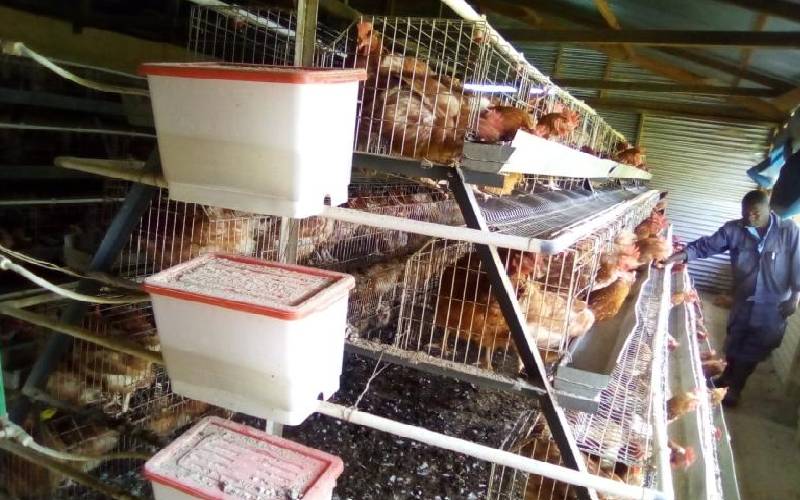
Business
Ms Wanjiru says buyers place orders on the app and she delivers.
Farmers and fresh produce traders in the South Rift region have turned to social media and farm-based sales to bridge the market gaps brought by the Covid-19 pandemic.
Many agricultural producers are grappling with supplies that they cannot sell due to restrictions imposed by the government to contain the spread of the virus, and people’s fear of contagion in crowded places that has left markets almost empty.
The farmers hope that by using the non-contact channels and selling at source they will cut their post-harvest losses that come with lack of access to the traditional markets.
“I’m forced to look to social media to market my produce… since 80 per cent of buyers have access to the internet,” Nakuru farmer Margaret Wanjiru told The Standard.
SEE ALSO: We’ve no option but to reopen and this is how it should happen
One platform that the traders are using is the Mkulima Young Market, a mobile app developed by a local social enterprise group, Mkulima Young.
Ms Wanjiru says buyers place orders on the app and she delivers.
“Before the coronavirus pandemic, I used to either wait at the farm for people to collect the produce or drive to the market. But as demand for home deliveries escalated, I stepped in to help my fellow mothers to access food,” says the mother of three.
Nakuru County Agriculture Executive Immaculate Maina says the app has helped farmers market their commodities.
“Because of the lockdown and curfew, we have decided to give farmers the online platform to sell their produce,” she told The Standard.
SEE ALSO: Our corona strategy is not working, change it
Register produce
The app was officially launched a week ago and links farmers across the East African Community, with the county official saying it has attracted at least 26,000 farmers in Nakuru.
To use the app, farmers are required to register themselves and what they are selling.
“We work closely with extension officers in the areas to verify quality of the produce sold,” says Dr Maina.
Miriam Labatt, a dairy and vegetable farmer from Ngata, began selling directly to consumers after her previous clients – hotels, restaurants and schools – shut down due to the Covid-19 outbreak.
SEE ALSO: We must tread very carefully on reopening of learning institutions
She used to supply at least 150 litres of raw milk daily to customers who included owners of automated vending machines at supermarkets.
Cope with effects
To avoid losses, she has turned to social media to communicate with other farmers and market her produce.
“I also supply some milk to New Kenya Co-operative Creameries, although they pay less than the other buyers,” Ms Labatt says.
The dusk-to-dawn curfew and partial lockdown of some counties has hit fresh produce farmers hard, she says, because vegetables are usually sold in the evening when it is cool to reduce wilting.
SEE ALSO: How counties will share Sh5 billion Covid-19 funds
“Since this Covid-19 is new to everyone, we are trying to cope with its effects and with the closure of market days in Nakuru County,” says Labatt.
David Juma, a farmer from Muchorwe village in Molo, says he and his neighbours initially had nowhere to go with their produce when the virus hit town.
“But the good thing is that our regular customers have decided to come directly to our farms to buy produce such as potatoes, beans, onions, cabbages and tomatoes,” he says.
“This has reduced overcrowding (at the market) since we deal with one or two buyers at a go.”
He has found the sales to be profitable, noting that he is able to sell his produce at the same price as before the pandemic.
SEE ALSO: Covid-19 patients not infectious after 11 days: Study
“As we progress, the major problem now is transporting our products to Nairobi. These days only two or three lorries pass by,” says Mr Juma.